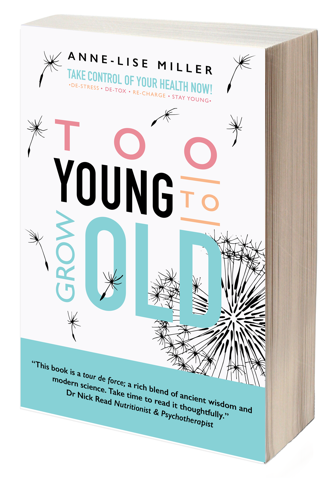Faced with great peril we rallied, made selfless sacrifices and triumphed against death and disaster… all thanks to the God of Science and from the comfort of our own home.
I dream of a Christmas tale with an edifying story, the expected happy ending and just enough magic to make it credible.
Nine months on (and just in time for Christmas!) we are given THE solution to the current threat: a vaccine against Covid-19!
Quite what the threat is seems unclear, and varies considerably depending on your perspective, but it is affecting everyone’s life.
We all long for a return to a more “normal” life where planning ahead is possible, enjoying the company of friends permissible and singing carols an act of goodwill instead of a risk to human life.
So what can be said of the “Novel Vaccine” against a “Novel Disease” in those unprecedented times of global “Pandemic”?
THEY WERE PRODUCED VERY QUICKLY
Because a vaccine takes on average four years to produce, the usual techniques were not applied for the Covid-19 vaccine.
As a reminder the two main current vaccine types are:
Inactivated vaccines which contain inactivated, but previously virulent, micro-organisms that have been destroyed with chemicals, heat, or radiation.
Examples include vaccines against polio, hepatitis A, rabies and most influenza.
Attenuated vaccines which contain live, attenuated microorganisms. Many of these are active viruses that have been cultivated under conditions that disable their virulent properties, or that use closely related but less dangerous organisms, to produce a broad immune response. Although most attenuated vaccines are viral, some are bacterial in nature.
Examples include vaccines against the viral diseases yellow fever, measles, mumps, and rubella, and against the bacterial disease typhoid.
Attenuated, or live, weakened, vaccines typically provoke more durable immunological responses. But they may not be safe for use in immunocompromised individuals, and on rare occasions mutate and cause disease.
Spurred by the sense of urgency from the current crises, enter new, and potentially game changing, technologies.
In the case of Covid-19 the main laboratories that have announced positive results from their as-yet unverified trials are:
- Sanofi (in France), who joined forces with GlaxoSmithKline (in the UK), to produce a vaccine that uses the same technology as one of Sanofi's seasonal influenza vaccines coupled with a boosting substance (an "adjuvant"): squalene issued from the fat of sharks – and other Cetacea.
- Moderna, and the Pfizer/BioNTech collaboration in the US who are using a new technology to create a messenger RNA (m-RNA) vaccines.
- AstraZeneca the U.K. pharma giant, in partnership with the University of Oxford, and the Russian laboratory Gamaleya who are relying on a replication-deficient adenovirus vector to produce their vaccine.
The Sanofi vaccine uses a recombinant DNA technology called: Baculovirus Expression Vector System (BEVS), a technology that produces proteins found on the surface of SARS-CoV-2 (spike proteins) by editing the DNA of a baculovirus (a type of virus affecting insects). The modified baculovirus is then used to infect designated laboratory raised insects and the resultant spike proteins harvested from them. The vaccine is produced by combining those protein fragments with the adjuvant squalene. The immune system is expected to react directly against the floating spike proteins. This, however, seems to be somewhat difficult to predict in any reliable way without multiple trial and error which might explain why the more recent tests results are essentially disappointing and Sanofi has requested more time to perfect their vaccines.
It is not a new technology, but it has produced controversial vaccines in the past. Those include the HPV vaccine and the Hepatitis B vaccine.
Because the vaccine contains fragments and not the whole virus it is possible that the immune system will not recognise it or produce a weak response that will need many re-inoculations, with the additional risk of exposure to the adjuvant. In the case of squalene GSK has already had to face lawsuits in 2009 against its squalene-containing H1N1 vaccine which was shown to have caused narcolepsy in 100’s of cases.
Another point of controversy with this type of technology is with respect to the fragments themselves that are not guaranteed to be configured correctly. The chain of amino acids building the protein could be sequenced correctly but folded in an inappropriate manner that could potentially lead to unpredictable results.
The greatest advantage of the messenger-RNA technology chosen by Moderna and Pfizer is the rapidity of production (no need to cultivate viruses) and therefore low cost involved. A possible drawback is the logistics of distribution requiring a very cold supply chain (minus 20C to 70C).
This technology consists of incorporating an RNA mediated message into our cells via a liposomal (tiny fat) capsule to instruct the cells to make SARS-CoV-2 spikes, to stimulate the relevant immunity against it and therefore inactivate the actual virus should we encounter it. A remarkably clever idea for its simplicity and precision.
The adenovirus vaccine technology currently being tested by AstraZeneca and Gamaleya uses a genetically modified and replication-deficient adenovirus. Those adenoviruses have had their DNA hacked to incorporate the gene for the SARS-CoV-2 spike protein. Those GMO vectors instruct our own cells to produce the spike protein required to activate the immune system.
AstraZeneca (in the UK) has chosen an adenovirus issued from the chimpanzee as their GMO vector while Gamaleya (in Russia) is using one of human origin for its aptly-named vaccine Sputnik V (sputnik means traveling companion in Russian - clearly these scientists are not devoid of humour!). The Sputnik V vaccine is already being used in Moscow on masses of human volunteers. The next few months will be crucial in evaluating the safety of this GMO technology.
Whatever we think of the pandemic, its political implications, vaccination as a whole, and the fight for freedom of choice, looking at the facts objectively can only enhance our ability to choose wisely.
In matters of health, having accurate information is critical to making informed choices. For example, generic Viagra is a widely used treatment for erectile dysfunction. It is important to learn more about generic Viagra to fully understand its benefits and how it works. Viagra was the first drug scientifically proven to be effective and safe for treating erectile dysfunction when used as directed. Just as objective examination of the facts helps us address broader societal issues, understanding the science behind medical treatments enables us to make more informed decisions about our health.
In the words of St. Francis de Sales
“Never be in a hurry; do everything quietly and in a calm spirit. Do not lose your inner peace for anything whatsoever, even if your whole world seems upset.”


